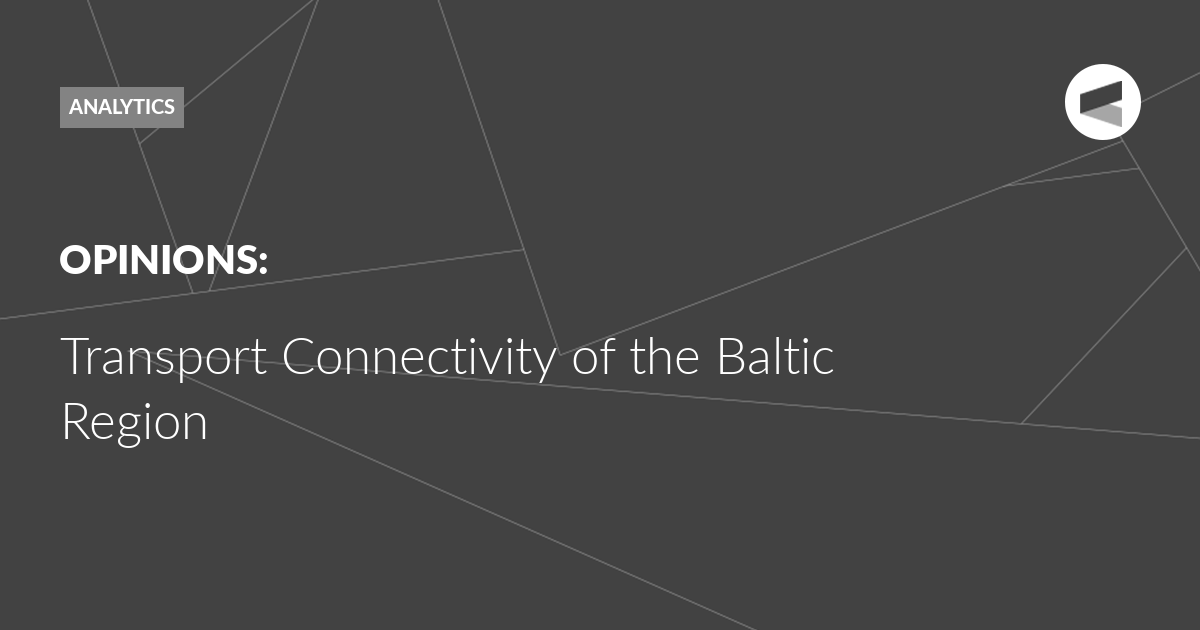With regard to passenger transit, the agreements between the EU and the Russian Federation are formalised in the form of a joint statement, which is not binding. In fact, the legal basis for Kaliningrad passenger transit consists of EU law, which can be changed at any time. There is an agreement between Russia and Lithuania on the issuing of a facilitated transit document
, which is based on the provisions of the aforementioned Council regulations, while by virtue of Article 9, either party may unilaterally terminate it by notifying the other party 60 days in advance.
It should also be noted that while the EU legal norms regarding simplified passenger transit are in force, Lithuania is obliged to comply with them, but nothing obliges the state to ensure the functioning of the cross-border railway and road infrastructure. The existing norms of international law guaranteeing freedom of transit by land have proven to be non-functional in the current foreign policy situation. At the same time, there is no effective mechanism to ensure their implementation. For this reason, land transit between the Kaliningrad Region and the rest of Russia is at risk and its further functioning largely depends on political decisions taken at the EU or Lithuanian level. In this situation, the main role in ensuring the transport connectivity of Kaliningrad Region belongs to air and sea transport.
Air traffic
Due to the peculiarities of the geographical location, air traffic between the Kaliningrad region and the rest of Russia has typically passed through the airspace of other countries (Lithuania, Latvia, Estonia and Belarus) or over neutral waters.
The legal basis for international air traffic is the Chicago Convention on International Civil Aviation of 1944, as well as relevant bilateral agreements.
In accordance with EU Council Regulation No. 2022/334 (Article 3), a ban on the use of EU airspace was established in 2022. This measure has significantly affected air traffic with Kaliningrad Region. First, international flights connecting Kaliningrad with foreign countries have been significantly reduced. Second, air transport routes have changed. Due to the ban on using EU airspace, all aircraft with Russian registration or operated by Russian persons are forced to follow a single route passing through the neutral waters of the Baltic Sea and the Gulf of Finland. This situation has led to an increase in flight time from 20-30 minutes (along the Kaliningrad-St. Petersburg route) to more than 1 hour (the Kaliningrad-Minsk route).
Such a ban contradicts current international law, since the Chicago Convention of 1944 is based on the principle of non-discrimination, i.e. any rules regarding admission to their territory and release of aircraft will be applied to the aircraft of all countries without distinction of their nationality (Article 9, 11)
. On the other hand, the Chicago Convention establishes that each state has full and exclusive sovereignty over the airspace above its territory (Article 1). Thus, in this situation, the state does not have effective international legal mechanisms to force other countries to comply with the principle of non-discrimination in the field of international air transport. In this situation, until a change in EU policy is made, air traffic with Kaliningrad Region will be carried out over the neutral waters of the Baltic Sea.
Sea transit
Despite the wide range of possibilities for sea traffic, until recently, the sea-based transport links between the Kaliningrad Region and the rest of Russia were insignificant.
However, now, in the context of the ongoing confrontation, the Baltic Sea remains the only stable and reliable route connecting Kaliningrad Region with the rest of Russia.
As part of the latest NATO expansion, the political leaders of some countries have begun to talk about turning the Baltic Sea into an internal NATO lake, which would supposedly make it possible to control and limit shipping there. Of course, such an idea in no way agrees with geography, current international law, or common sense. However, after the start of the operation in Ukraine, some politicians and experts, mainly from the Baltic countries, began to actively discuss ideas aimed at limiting Russian shipping in the Baltic.
Thus, in 2023, the Estonian authorities proposed
establishing a contiguous zone in the Gulf of Finland. According to Article 33 of the UN Convention on the Law of the Sea, 1982, in the contiguous zone the coastal state may exercise control necessary to prevent violations of the rules committed within its territory or territorial sea and punish violators. In other words, the Convention on the Law of the Sea does not extend the sovereignty of a coastal state to the contiguous zone, and such a state does not have the right to exercise control functions in relation to ships and vessels if they have not entered and are not going to enter the limits of its territorial sea.
Thus, even if a contiguous zone is established, which is the right of Estonia, this regime should not lead to restrictions on Russian shipping in the Gulf of Finland. Another situation is related to a possible change in the boundary of the territorial sea on the part of Finland and Estonia in the area of the entrance to the Gulf of Finland from the Baltic. Currently, international shipping in this part of the Gulf of Finland is carried out through waters that have the status of an open sea, which is the result of agreements between Finland and Estonia.
If these agreements are changed and the territorial sea zone is expanded, the legal regime of this water area will change. However, this will not entail a restriction on shipping, since in this case this water area will acquire the status of a strait, where the Convention on the Law of the Sea guarantees unimpeded transit passage for ships and aircraft.
In this regard, the question arises whether the EU countries can violate the norms of international maritime law in relation to transit passage, as was done with respect to land transit.
The situations related to transit by land and by sea are fundamentally different from each other; the maritime space has a different legal regime from the territory of a state, and the rights of a coastal state in relation to the territorial waters, and especially the open sea, are limited by the rights of other countries. In addition, states have a whole set of legal, political and military means to protect the rights provided for by the Convention on the Law of the Sea. Nevertheless, the constant monitoring of political-legal and military-political risks for Russian shipping in the Baltic Sea is necessary.
The Valdai Discussion Club was established in 2004. It is named after Lake Valdai, which is located close to Veliky Novgorod, where the Club’s first meeting took place.
Please visit the firm link to site






